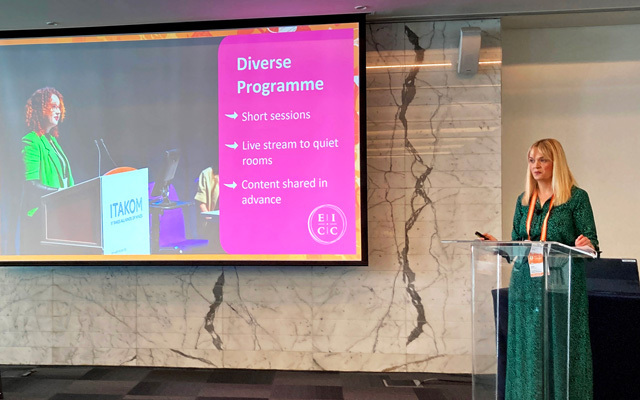Programme designers of business events need to be aware that at least one in five people are neurodivergent – according to the Neu Project, this includes ADHD, ASD, dyslexia, dyspraxia, Tourette’s syndrome, etc.
Gayle McGuinn, head of associations sales, Edinburgh International Conference Centre (EICC), who led the session Transforming Events: Empowering Inclusion through Neurodiversity, extrapolated that with more than 1,500 delegates at this year’s congress, up to 600 could be neurodivergent.

Indeed, a number of participants at the session shared they are neurodivergent.
As the movement is evolving, events must also transform by empowering inclusion, she McGuinn.
The ICCA Congress could start by including more “quiet spaces” and be aware of the impact of “sensory overload”, she opined.
To host It Takes All Kinds of Minds and create an inclusive experience, McGuinn said EICC launched an education programme comprising staff training and an accessibility audit. It trialled the new processes and fine tuned the details.
Other initiatives included the creation of a delegate manual to relieve delegate anxiety, introducing silent flappause (clapping by waving both hands), improving light and sound by using soothing blue and green lights, and deactivating hand dryers.
Delegate support also included quiet times and rooms, and colour-coded badges for sessions.
On the F&B front, sensory sensitivities, separate food, plain food stations, and quiet dining areas were offered.
Event practitioners, she advised, should design a diverse programme with short sessions, live stream to quiet rooms, and share content in advance.
Speaker support should include detailed guidelines; they should be encouraged to use visuals and conduct familiarisation sessions.
McGuinn continued: “A hybrid event would widen the reach; participants could engage via the event app and address interaction preferences.”





















